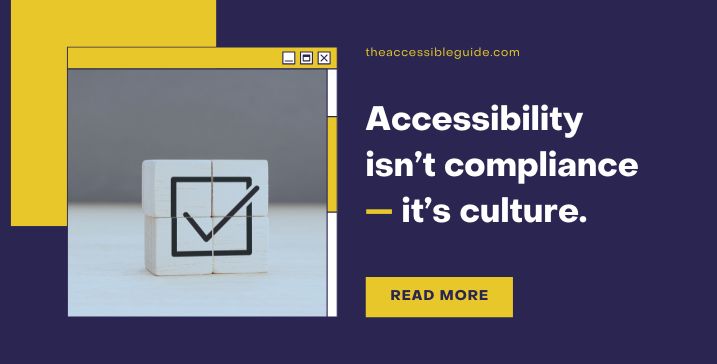When conversations about discrimination take place, they often focus on race, gender, sexuality, or religion. These are critical and necessary discussions, but too often, ableism is overlooked or treated as a “lesser” issue. The reality is that ableist-discrimination against disabled people – is just as harmful and pervasive as any other form of prejudice and it deserves the same level of recognition and seriousness.
Why Ableism Is Often Dismissed?
One reason ableism is underestimated is that disability itself is frequently misunderstood. Society often frames disability as an individual “problem” to overcome, rather than a social justice issue rooted in exclusion and inequity.
When barriers exist – whether physical, digital, or attitudinal – people tend to assume the responsibility lies with the disabled person to adapt, rather than with society to remove those barriers.
Visibility also plays a role. There are many individuals with hidden disabilities that are heavily stigmatised. This leads to silence and avoidance, which reinforces the idea that ableism is somehow “not as pressing” as other forms of discrimination. Yet for disabled people, ableism is a constant force shaping access to education, employment, healthcare, and socially.
The Everyday Impact of Ableism
Ableism manifests both subtly and openly, including:
- Buildings and infrastructure designed without accessibility in mind.
- Employers assuming disabled people are less capable.
- Media that portrays disability as something tragic, inspirational, or “less than.”
- Casual language and jokes that demean or stereotype disability.
- Policies and practices that prioritise convenience over accessibility.
These are not small inconveniences, they are systemic barriers that restrict rights, opportunities, and inclusion.
Why Ableism Should Be Taken Seriously
Disability represents the largest minority group globally, and it is one that anyone may join at some point in their lives. Despite this, disabled people experience disproportionately high rates of poverty, unemployment, healthcare inequities, and underrepresentation in leadership. These outcomes are not inevitable; they are the direct result of ableist systems and attitudes.
To downplay ableism is to send the message that the dignity, equality, and participation of disabled people are optional. Discrimination does not exist in a hierarchy – every form of exclusion demands accountability and change.
Building a Culture of Respect
- Taking ableism seriously requires:
- Listening to disabled voices in policy making, advocacy, and representation.
- Challenging ableist language and assumptions in everyday interactions.
- Prioritising accessibility in design rather than treating it as an afterthought
- Acknowledging intersectionality, since many disabled people also experience racism, sexism, homophobia, and other forms of discrimination.
Ableism should never be treated as secondary. It is a systemic form of discrimination that impacts millions worldwide – and addressing it is essential to creating a just and inclusive society.
.




